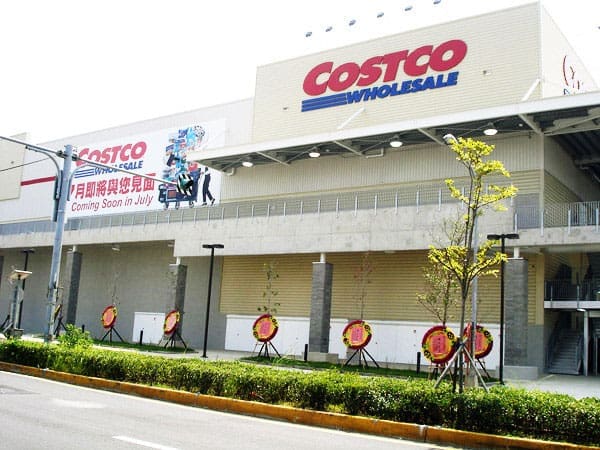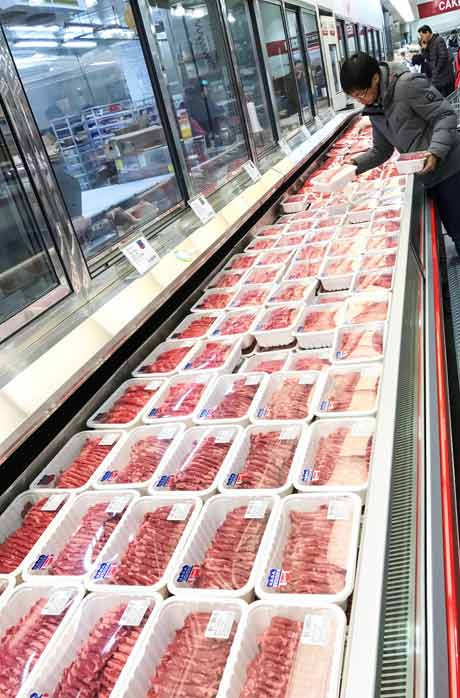ISSUES such as greenhouse gas emissions and deforestation are “absolutely being taken into consideration” when making buying decisions, a senior meat executive with the vast Costco wholesale and retail network told an Australian beef industry webinar on Thursday.
Bob Huskey, an assistant vice president for the Costco Wholesale Corporation based in Seattle, Washington, ‘zoomed’ in to join the Australian Beef Sustainability Framework Consultative Committee Webinar on International Markets and Trade yesterday.
Mr Huskey started out as a cart pusher in a Costco warehouse 26 years ago and now oversees protein sourcing including beef, pork, poultry and seafood.
The numbers alone convey the sheer scale of the business he is part of: in the last fiscal year Costco reported $149 billion in sales; it now has nearly 250,000 employees working in 795 warehouses or stores across 13 different countries, including Australia, and an increasingly large online presence through Costco.com.
Sustainability ‘a more important part of my sourcing decision’
Mr Huskey said sustainability factors are becoming “a more and more important part of my sourcing decision”.
Costco now has a dedicated sustainability department and Mr Huskey said he is also involved with the Global Roundtable for Sustainable Beef.
“It is important to us that we’re doing the right thing,” he said. “Things such as the greenhouse gases and deforestation, they absolutely have to be taken into consideration when we’re making buying decisions.”
The reason for this was two-fold, he said.
One, “it was the right thing to do”.
The second was that having a meat industry with sustainable business practices was important and will be able to help companies such as Costco to support sales growth in future.
Growth in organic and ‘natural’ space
Costco’s meat department has been selling organic product for 13 years and was still seeing good growth in that area Mr Huskey said.
At the same time ‘natural’ meat programs, which require nil antibiotic treatments but are not backed by the same degree of certification as organic product, were also growing.
“I would say our member base is more interested in organic but still dealing with limited supplies,” he said.
“But what we’re seeing is more so of the industry moving towards a natural program, anti-biotic free.
“Generally speaking Costco is the largest retailer of organics in the world and we continue to see good growth so we keep building on that, on a very large base.”
Online sales were also now a large growth area for the company.
“When you have warehouse you have four walls, and so we’re very limited on the items that we can offer, when you go on Costco.com the landscape changes and we’re able to test some of these more niche items if you will.”
Amazon burning delays Mercosur-EU trade deal
Earlier in the session MLA market analyst Tim Ryan who is based in Singapore said sustainability was manifesting in a range of areas, such as trade agreements being negotiated with the United Kingdom and Europe.
“Having sustainability credentials that we can demonstrate improvement on really helps there,” he said.
“Look at the Mercosur (Argentina, Brazil, Paraguay and Uruguay) -EU trade deal, that is currently held up because of concerns Brazil is burning the rainforest.
“In Singapore I can go to the butcher and get two carbon neutral beef brands.
“It is definitely not mainstream yet but there are some niches in the market that we see where consumers are wanting sustainability product, and we’re seeing big food service and retailers base their procurement decisions on sustainability measures.”
‘What is Industry Inc doing?’
Australian Meat Industry Council chief executive officer Patrick Hutchinson said there were a number of individual brand driven programs based on sustainability factors, but the key question was “what is ‘Industry Inc’ doing?”
“What sort of sustainability process can we actually apply where all industry can play a part and where all of industry can then set its credentials,” he said.
“At the moment the credentials have been set in very specific supply chains underpinned by brands and potentially have the opportunity of getting better returns on the investments made.”
He said it was likely individual brands would be lead sustainability in the next three to five years and provide the point of differentiation customers were looking for.
- This article has been updated from the version originally published to more accuratley clarify a point made by Mr Huskey that having a meat industry with sustainable business practices is important and will help to continue to support sales growth.


